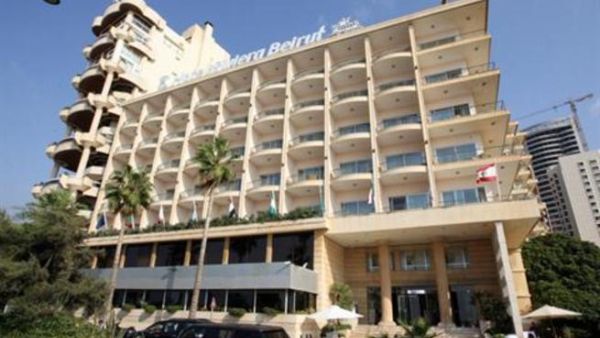Rumors of an unofficial boycott of Lebanon by oil-rich Gulf states have the Lebanese business community on edge, with trade, tourism, and billions of dollars in remittances on the line.
While the deportation of Lebanese citizens, particularly Shia, from some Gulf countries has been going on for several years, anecdotal evidence is mounting to indicate that Saudi Arabia, Qatar, and the United Arab Emirates are ratcheting up efforts to restrict Lebanese travel to the Gulf.
One Lebanese banker from Beirut tells the story of one of his relatives who was applying for a visa at the Qatari embassy in Lebanon. He checked the embassy’s website for visa requirements and began preparing his documents, including a hotel reservation in one of the hotels in Doha.
The reservation clerk at the hotel then informed him that the Qatari authorities are no longer allowing hotels to provide reservations to Lebanese citizens.
The Qatari authorities are no longer allowing hotels to provide reservations to Lebanese citizens.Another account by a local bank manager tells of a Lebanese friend of his living in Abu Dhabi who tried to make a brief business trip to Lebanon and was never able to make it back as the Emirati embassy refused to give him a visa.
Many point to the recent travel warnings against Lebanon issued by Arab Gulf governments, high levels of rejection for Lebanese applying to visit the Gulf, and the refusal to renew residency permits or even deportation of Lebanese already living in the Gulf as further evidence of this boycott.
A Lebanese government official, who spoke on the condition of anonymity, told Al-Akhbar that the Saudis are rejecting most Lebanese applications for visitor visas. Even visas for pilgrimage to Mecca have been restricted and are subject to increased scrutiny by security agencies.
The head of one economic association says he was informed that Saudi embassy officials recently rejected 29 out of 30 applications for short visit visas.
All these stories suggest an undeclared boycott. While Lebanese officials have made no official announcement, concerned parties in both the government and the private sector expressed anxiety over the effect this could have on the Lebanese economy.
A government minister following-up the case who preferred not to be named says he is not surprised, and believes the restrictions are due to the crisis in Syria.
“[Visa restrictions] became clear at the beginning of the summer with the events unfolding in Syria and Lebanon,” he said.
Business leaders see this as a worrying development in the relationship between Lebanon and Gulf states.
Following the clashes in the North and the Mokdad family kidnapping spree in August, the embassies of the UAE, Qatar, Saudi Arabia, Bahrain and Kuwait issued communications asking their citizens to leave Lebanon and avoid travel to the country. Moreover, Qatar threatened to expel all Lebanese working on its territories if any of its citizens were kidnapped.
Qatar threatened to expel all Lebanese working on its territories if any of its citizens were kidnapped.The tourism industry is depends primarily on visitors from the Gulf, especially the emirs and wealthy families who stopped visiting Lebanon around two years ago when the Arab uprisings swept the region.
2012 saw a 71.5 percent drop in the number of Saudi tourists in the first seven months of the year, compared to the same period last year, according to the Ministry of Tourism.
In addition to the damage sustained by the tourism sector, Lebanon is now poised to lose a large portion of the remittances that keep the country afloat.
Remittances from Lebanese citizens in the Gulf comprise a significant chunk of the Lebanese economy. According to the World Bank, of $6.7 billion in remittances annually, 70 percent come from expatriates living the Gulf states.
Political overtures appear to have no effect. Following the travel warnings in May, Lebanese president Michel Sleiman visited five GCC countries last June, and foreign minister Adnan Mansour went to Qatar. A few days earlier, parliamentary speaker Nabih Berri had been in the UAE negotiating the return of Lebanese citizens who had been forcibly deported from the UAE.
All three Lebanese leaders heard sweet-talk from the Gulf emirs, but have seen nothing to show for it.








